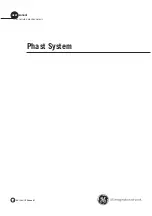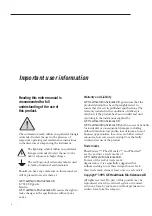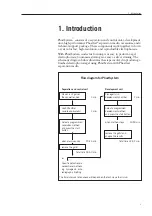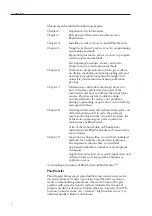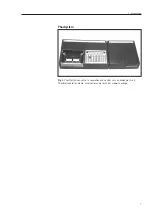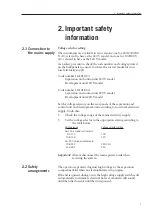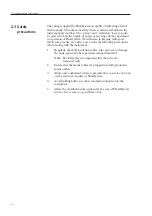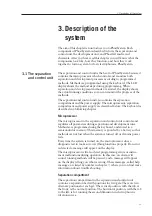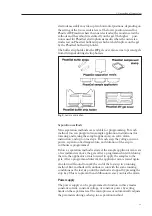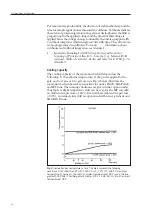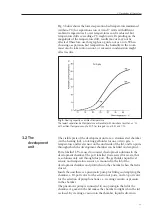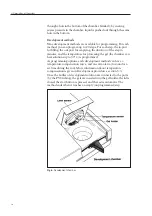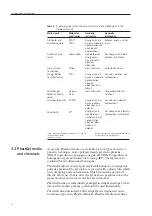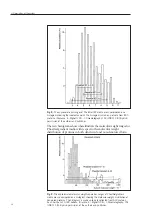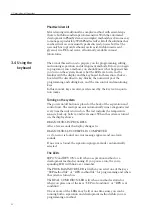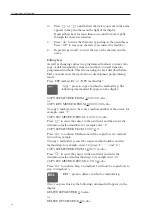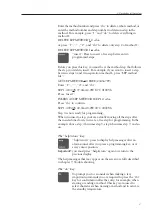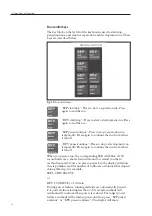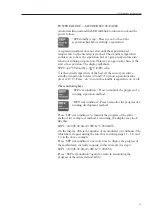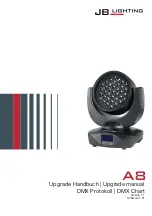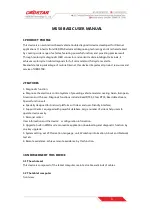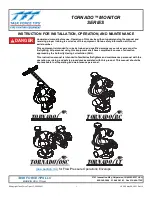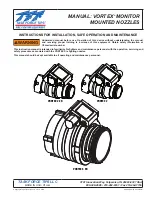
15
Fig. 5 below shows the lowest separation bed temperature maintained
(within ±l°C) for separations run at 4 and 7 watts with different
ambient temperatures. Lower temperatures can be achieved but
temperature drifts exceeding ±l°C might occur. Depending on the
magnitude of the temperature drift, results may or may not be
affected. Therefore, use this graph as a guide, not as a rule. When
choosing a separation bed temperature, the humidity in the room
must also be taken into account, or excessive condensation might
affect results.
Fig. 5.
Cooling capacity vs ambient temperature.
The lowest separation bed temperature achievable (with deviations less than ±1°C)
with ambient temperature up to 40°C for two gels run at 4 W and 7 W.
The visible parts of the development unit are: a stainless steel chamber
(with a heating foil), a rotating gel holder for one or two gels, a
temperature and level sensor on the underside of the lid, and ten ports
through which the development chamber can be filled and emptied.
Ports labelled 1-9 are used to connect development solutions to the
development chamber. The port labelled 0 is reserved for waste, that
is, solutions only exit through this port. The gel holder, liquid level
sensor, and temperature sensor are mounted in the lid of the
development chamber and protrude into the chamber when the lid is
closed.
Inside the unit there is a pneumatic pump for filling and emptying the
chamber, a 10-port valve for the selection of ports, and a 3-port valve
for the selection of pump functions i.e., creating vacuum or pressure
in the chamber.
The pneumatic pump is connected to an opening in the lid of the
chamber. A gasket in the lid makes the chamber airtight when the lid
is closed. By creating a vacuum in the chamber, liquid is drawn in
3.2 The
development
unit
3. Description of the system

